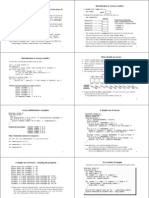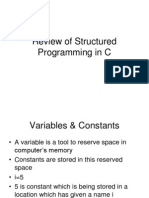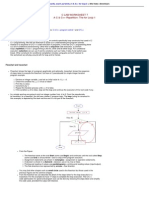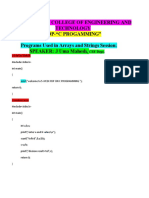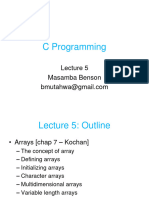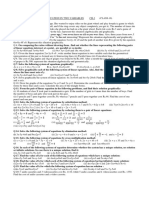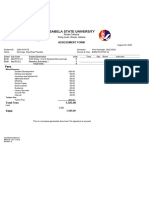0% found this document useful (0 votes)
9 views38 pagesLecture 4 - Arrays&Loops
The document discusses programming concepts related to arrays and loops, including how to declare and access arrays, as well as the different types of loops (while, do-while, for) and their flow control mechanisms. It explains the differences between scalar and array data types, and how to use loops in conjunction with arrays to iterate through their elements. Additionally, it covers topics such as designated initializers, memory management, and flow control commands like break and continue.
Uploaded by
coolguysemail222Copyright
© © All Rights Reserved
We take content rights seriously. If you suspect this is your content, claim it here.
Available Formats
Download as PPTX, PDF, TXT or read online on Scribd
0% found this document useful (0 votes)
9 views38 pagesLecture 4 - Arrays&Loops
The document discusses programming concepts related to arrays and loops, including how to declare and access arrays, as well as the different types of loops (while, do-while, for) and their flow control mechanisms. It explains the differences between scalar and array data types, and how to use loops in conjunction with arrays to iterate through their elements. Additionally, it covers topics such as designated initializers, memory management, and flow control commands like break and continue.
Uploaded by
coolguysemail222Copyright
© © All Rights Reserved
We take content rights seriously. If you suspect this is your content, claim it here.
Available Formats
Download as PPTX, PDF, TXT or read online on Scribd
/ 38


